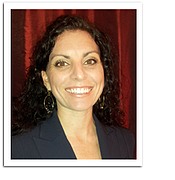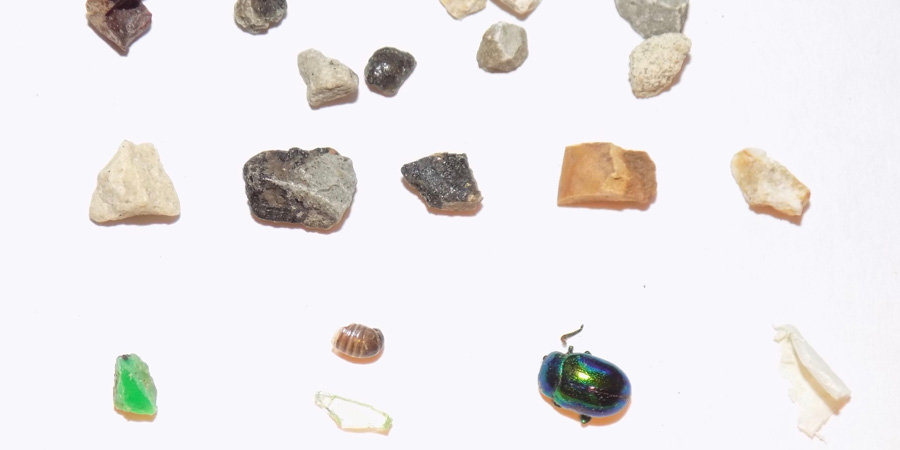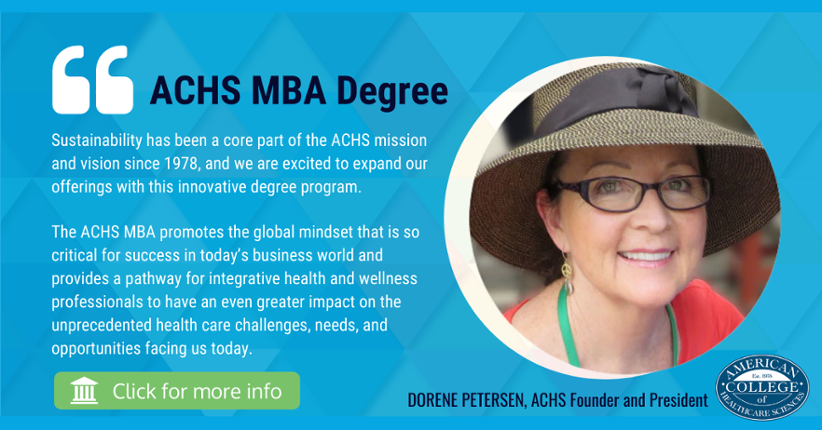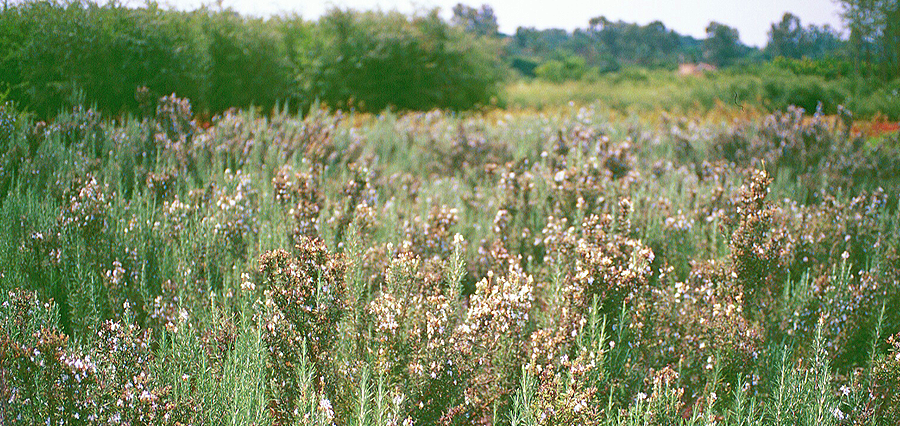This blog is co-authored by Natalya Shepeleva, QA and GMP Coordinator at ACHS
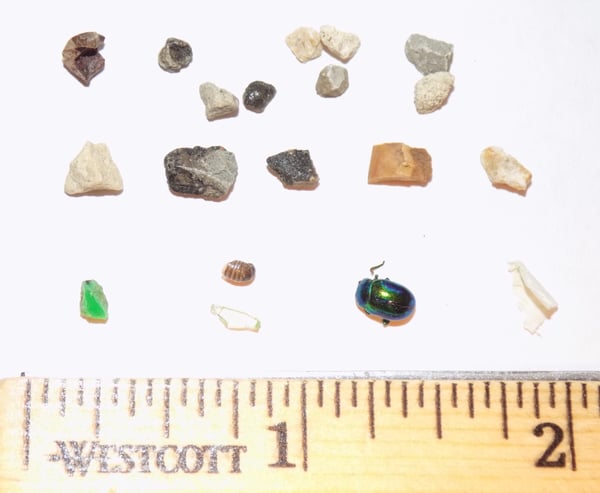 Foreign material found in Nettle Urtica dioica (L.)
Foreign material found in Nettle Urtica dioica (L.)
Image Copyright: ACHS
Have you heard the joke? Question: "what is worse than finding a worm in your organic apple? Answer: "finding half a worm." This may be a joke, but according to a CNN article, a woman in Wisconsin discovered a living frog in her Simple Truth Organic lettuce salad.[i] Well, at least it was not sprayed with pesticides. You may be thinking, well, after all, it was a living frog. A closer look, however, reveals certified organic does not guarantee free from living or dead insects and critters! If there are frogs in your certified organic salad, let's take a look at what may be in your certified organic herbs!
Quality control for fresh and dried botanical products, certified organic or not, continues to be a challenge for raw material suppliers. Good Manufacturing Practices (GMP), requires inspections of all incoming herbs. The amount of foreign matter in an herb is one of the tests that need carried out and documented. So we spend time looking for all the bits and pieces that you would not want floating in your herbal tea, boiled in your decoction, or soaked in your tincture.
So what are these extra bits and pieces, and how much is permitted? Authorities such as the Pharmacopeias, the World Health Organization (WHO), and the American Herbal Products Association (AHPA) all have guidelines on medicinal and culinary herbs.
Pharmacopieas primarily focus on what parts of the plant botanical herbs should consist of using precise botanical language, which can seem like a foreign language if you have not studied botany. But don't let that put you off. The internet can quickly give you the meaning and pronunciation of most botanical terms.
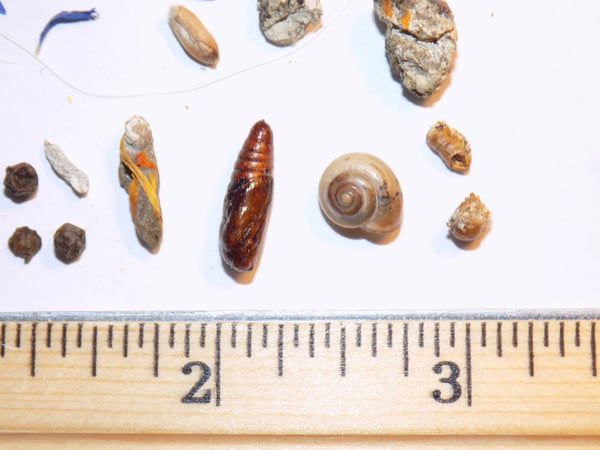
Foreign material found in marigold Calendula officinalis (L.)
Image Copyright: ACHS
For example, the British Pharmacopeia states calendula, Calendula officinalis should consist of the dried ligulate (that just means strap-shaped) florets of the common marigold. Details such as harvesting time and organoleptic qualities such as color and aroma are all included. However, it does not specify the acceptable quantity of foreign material.
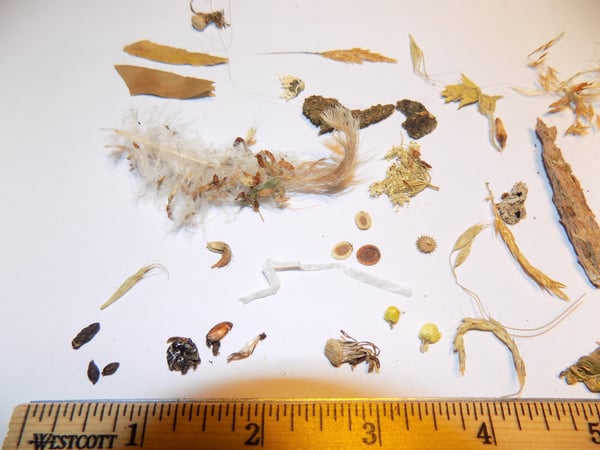
Foreign material found in Red clover Trifolium pratense (L.)
Image Copyright: ACHS
.jpg?width=600&name=Red%20clover%202%20Starwest%20P83067%20(1).jpg)
Foreign material found in Red clover Trifolium pratense (L.)
Image Copyright: ACHS
The World Health Organization (WHO) provides more explicit guidance on how much foreign matter may be present in herbs.[ii] According to WHO, foreign matter can be other plant parts, soil, sand, dust, and stones. Not so harmful right? The World Health Organization goes on to advise "that all herbal materials should be entirely free from visible signs of contamination by molds or insects, and other animal contamination, including animal excreta." However, even WHO agrees it is seldom possible to obtain marketed plant materials that are entirely free from some form of innocuous foreign matter. Bottom line "… no poisonous, dangerous, or otherwise harmful foreign matter or residue should be allowed".
Here in the USA, most bulk herb suppliers, follow the American Herbal Product Association (AHPA) Guidance on Limits of Foreign Matter in Herbal Ingredients[iii]. AHPA, like WHO, says that the presence of potential choking hazard objects, poisonous, dangerous, or otherwise harmful foreign matter or residue is not allowed. Mold or insects, and other animal contamination, including animal excreta, must also be absent. Economically motivated adulteration or unintentional adulteration with other plant material are both frowned upon by AHPA.
Despite this guidance, some bulk herbal suppliers believe that selling herbs containing beetles or animal droppings is standard practice, as long as the amount of foreign matter does not exceed 2%.
Let's face it herbs and salad greens are grown in nature, so a few sticks and stones may be acceptable. But where do we draw the line? What is dangerous residue? Just like flotsam and jetsam littering the shoreline on an outgoing tide, a careful analysis of the majority of certified organic herbs usually reveals a selection of debris. There may be pieces of glass, insects, and animals excreta – yes, rodent droppings.
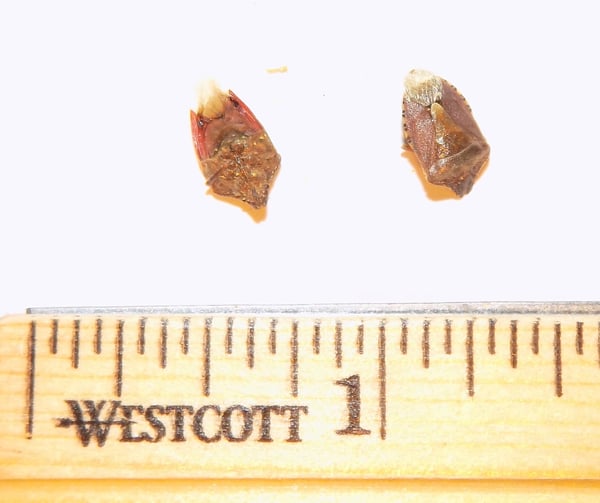
Foreign material found in German Chamomile Matricaria recutita
Image Copyright: ACHS
It is common knowledge that pieces of glass are potentially hazardous objects, but did you know that insects and animal excreta can also be harmful. Referred to as "Filth Adulterants" by the FDA, they caution that not all insects are harmless as this report of a Monomorium pharaonis (L.), Pharaoh ant, a known carrier of Listeria monocytogenes isolated from spices reveals.[iv]
Likewise, seemingly harmless mouse droppings can carry a hantavirus that is dangerous for humans, and the presence of beetles may result in unwanted components in the herbal extract. Infusion of beetle anyone?
Yikes, what can we do about it? Start by buying your bulk herbs from a trusted supplier who you can talk to. Ask questions about quality control. Practice your own quality control. If you buy your herbs in bulk sift through them to ensure they are free from foreign matter. It is worth the extra effort to provide a cleaner, safer end product. Tincture of beetle anyone?
[i] Trammell, K. (2019, August 17). A family found a living frog in a carton of organic salad greens. Enjoy your day. Retrieved from https://www.cnn.com/2019/08/17/us/wisconsin-frog-organic-salad-trnd/index.html
[ii] World Health Organization (1998). Quality control methods for herbal materials Retrieved from https://apps.who.int/medicinedocs/documents/h1791e/h1791e.pdf
[iii] American Herbal Products Association (2017, October). Guidance on limits of foreign matter in herbal ingredients [PDF file]. Retrieved from http://www.ahpa.org/Portals/0/PDFs/Policies/Guidance-Documents/Guidance_Foreign_Matter_Limits.pdf
[iv] Olsen, A.R., J.S. Gecan, G.C. Ziobro, and J.R. Bryce. 2001 Regulatory action criteria for filth and other extraneous materials: V. Strategy for evaluating hazardous and nonhazardous filth. Regul. Toxicol. Pharmacol. 33:363-392.
Have questions? Contact us today! Call 800-487-8839 or email alumni@achs.edu.
About American College of Healthcare Sciences
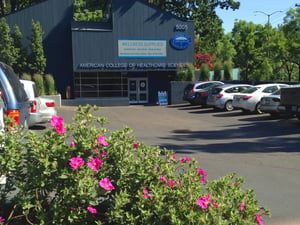 Founded in 1978, ACHS.edu is a Portland, Ore.-based, accredited college offering online, on-campus, and study abroad integrative health education. With undergraduate and graduate degrees, diplomas, certificates, and continuing education units in integrative health, ACHS makes holistic health and wellness education accessible to a diverse community, including healthcare professionals, military students, stay-at-home parents, and lifelong learners. Specializations include aromatherapy, herbal medicine, holistic nutrition, wellness coaching, and integrative health modalities. ACHS is a Certified B Corporation® and was named three of 100 Best Green Workplaces in Oregon 2019 by Oregon Business magazine. ACHS is also accredited by the Distance Education Accrediting Commission (DEAC), which is recognized by the U.S. Department of Education and by the Council for Higher Education Accreditation (CHEA). In response to our commitment to service members, veterans and military spouses, ACHS has been designated as one of the top 15% of military-friendly institutions in the U.S. for nine years in a row. For more information visit achs.edu.
Founded in 1978, ACHS.edu is a Portland, Ore.-based, accredited college offering online, on-campus, and study abroad integrative health education. With undergraduate and graduate degrees, diplomas, certificates, and continuing education units in integrative health, ACHS makes holistic health and wellness education accessible to a diverse community, including healthcare professionals, military students, stay-at-home parents, and lifelong learners. Specializations include aromatherapy, herbal medicine, holistic nutrition, wellness coaching, and integrative health modalities. ACHS is a Certified B Corporation® and was named three of 100 Best Green Workplaces in Oregon 2019 by Oregon Business magazine. ACHS is also accredited by the Distance Education Accrediting Commission (DEAC), which is recognized by the U.S. Department of Education and by the Council for Higher Education Accreditation (CHEA). In response to our commitment to service members, veterans and military spouses, ACHS has been designated as one of the top 15% of military-friendly institutions in the U.S. for nine years in a row. For more information visit achs.edu.
This article is for informational purposes only. It is not intended to treat, diagnose, cure, or prevent disease. This article has not been reviewed by the FDA. Always consult with your primary care physician or naturopathic doctor before making any significant changes to your health and wellness routine.
Disclosure of Material Connection: I am the Founder and President of the American College of Healthcare Sciences, the Institution that publishes this blog. However, all opinions are my own. This blog may contain affiliate links. I am disclosing this in accordance with the Federal Trade Commission’s 16 CFR, Part 255: “Guides Concerning the Use of Endorsements and Testimonials in Advertising.”
 Co-authored by Natalya Shepeleva, the QA and GMP Coordinator at ACHS. She received her Master’s degree in Industrial Pharmaceutics from the National University of Pharmacy of Ukraine. After graduation, she worked in the pharmaceutical manufacturing field in Moscow, Russia, where she developed a new drug, created documentation, and managed quality control. Natalya immigrated to the U.S. in 2001, and has worked in the nutraceutical industry specializing in quality control, assurance, and GMP compliance.
Co-authored by Natalya Shepeleva, the QA and GMP Coordinator at ACHS. She received her Master’s degree in Industrial Pharmaceutics from the National University of Pharmacy of Ukraine. After graduation, she worked in the pharmaceutical manufacturing field in Moscow, Russia, where she developed a new drug, created documentation, and managed quality control. Natalya immigrated to the U.S. in 2001, and has worked in the nutraceutical industry specializing in quality control, assurance, and GMP compliance.
